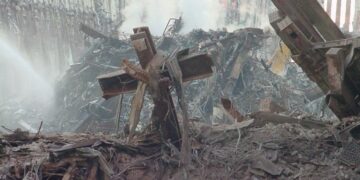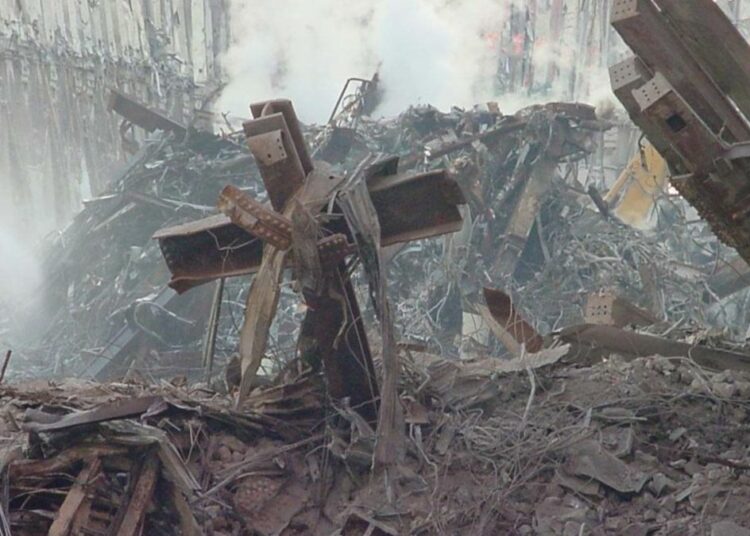On the evening of September 10, 2001, I walked out of United Nations headquarters and returned to my nearby hotel after a long day of working with delegates and fellow NGOs at negotiations for the upcoming Special Session on Children, a follow-up to the 1989 Convention on the Rights of the Child (CRC). The meetings had become protracted and extremely contentious. Never, one delegate told me, had he seen such divisiveness in the UN.
The problem had carried forward from the CRC itself, a highly problematic treaty that became a reality only after numerous countries registered serious reservations over concerns later summarized by our founder, Dr. Allan Carlson: “The Convention on the Rights of the Child contains measures that subvert the authority of parents over their children; strip away the authority of religious faith and tradition in favor of a politicized and radical social science; and prevent nations and peoples from sheltering their own unique cultures.” Thus cloaked in a document ostensibly dedicated to protect children, the CRC was in fact an attack on their natural refuge and what the Universal Declaration of Human Rights affirmed as “the natural and fundamental group unit of society,” namely, the family. And now as the UN prepared to follow up on the CRC, the contention was palpable.
The next morning on 9/11 as I left my hotel and walked back toward the UN, I relished the fresh air and crystal blue sky of that beautiful September day in New York. Perfect fall weather on a peaceful day, I remember thinking. Coming within sight of the building, I was surprised to see policemen and a large crowd gathered outside. It had been evacuated, people were saying, because a jet had crashed into one of the Twin Towers of the World Trade Center, raising a security concern at the UN. In the next few minutes, more uniformed officers continued to arrive until we were finally told that the building was closed for the day and we should all return home as quickly as possible.
I retraced my steps but continued past my hotel to 2nd Avenue, a one-way street for southbound traffic. But instead of cars, there were hordes of people streaming north, some walking and others running. Their expressions of confusion and terror were unforgettable, as was the scene that loomed behind them: a mushrooming cloud of smoke as if an atomic bomb had just exploded. America was under attack.
Several weeks later on a return trip to Manhattan, I visited the site of the fallen Towers. The horrific devastation and stench were nearly overwhelming. Instinctively I reached for my cell phone and called my wife, trying to describe in subdued tones what I was feeling. As I spoke, I noticed that a colleague had likewise grabbed his phone and was speaking with his wife. The coincidence struck me. In times of our greatest need and deepest emotion, it is to family that we instinctively turn.
It was only later that I perceived a further connection with family. Although the name “Ground Zero” as it is applied to where the World Trade Center stood is derived from the term’s definition as “the point on the surface of the ground at which the explosion of an atom bomb occurs,” there is an alternate definition: “the very beginning: square one.” In this sense, the family itself is our Ground Zero, both individually and collectively.
In the years since I stood at the site of the fallen Towers, I have looked back on that experience as a kind of microcosm of what had transpired decades earlier. In the wake of the global catastrophe known as World War II, when mankind contemplated the horrible destruction, they likewise turned to family as the United Nations declared it to be society’s natural and fundamental group unit. What a tragedy that decades later, forces in the UN began undermining the family in the name of rights.
As to the Special Session on Children, I am happy to report that thanks to the valiant work of courageous colleagues and delegates, the text that was finally agreed to contained language better than had appeared in UN documents for decades, including a commitment to “the enhancement of children’s physical, social, emotional, spiritual and cognitive development” (36(e)) and to take “into account the best interests of the child, consistent with national laws, religious and ethical values and cultural backgrounds of the people” (37, chapeau). Months later at a UN meeting in Thailand, I heard the head of International Planned Parenthood Federation fume against those provisions and vow to recover the ground it had lost.
As proponents of what has well been called the global sexual revolution continue their relentless campaign to undermine family, change marriage, and make children pawns of the state, we recall the warning of Ethiopian Emperor Haile Selassie: “Throughout history, it has been the inaction of those who could have acted; the indifference of those who should have known better; the silence of the voice of justice when it mattered most; that has made it possible for evil to triumph.” At this critical time, IOF is moving ahead as never before to unite and equip leaders worldwide to stand up and speak up as we all join in protecting the family, our Ground Zero.




















Discussion about this post